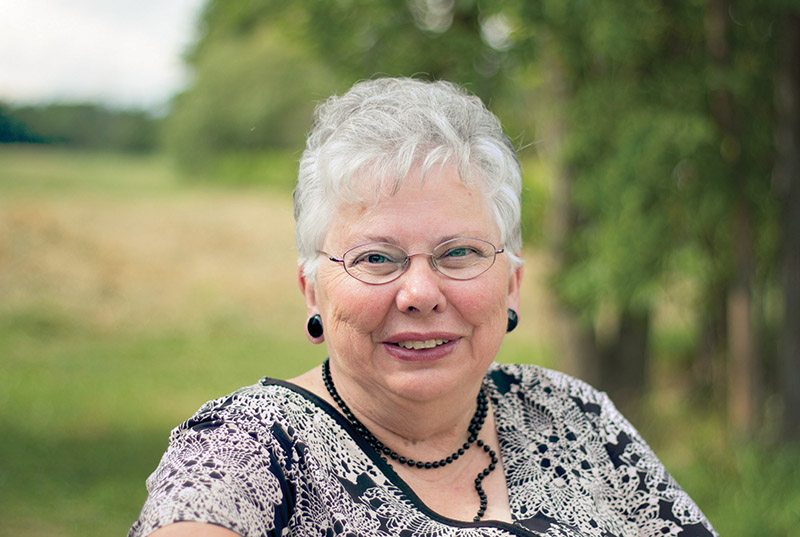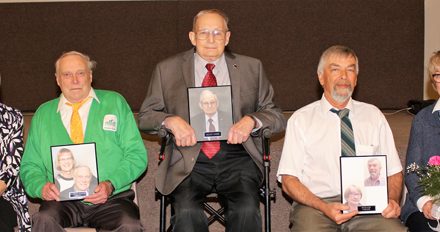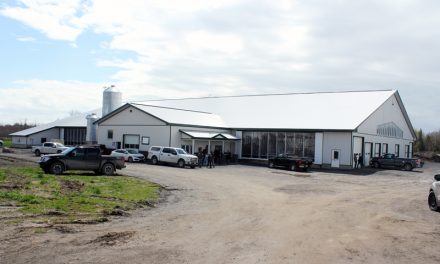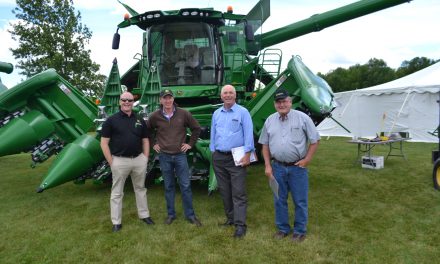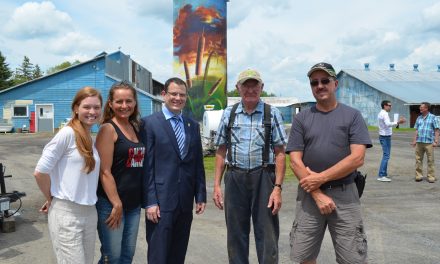Lynda McCuaig shares a lifelong relationship with 4-H
Lynda McCuaig has worked as a 4-H member for over half a century and would not trade a minute of it for anything. Courtesy Photo
A lifetime of caring, sharing and leading is what makes Lynda McCuaig a part of the 4-H Club legacy throughout Eastern Ontario.
The veteran 4-H member, leader and administrator has enjoyed having the 4-H Club as part of life for more than 50 years.
“It began in 1962 when I was a 4-H member,” said McCuaig. At the time she lived at Manotick Station. Her family operated a small farm with dairy cattle. Like many small farms in Ontario, she had parents who had to have an outside job to help with the family farm income.
Her father was superintendent for the roads in the former Gloucester Township.
“My dad, Norman Pyper, started working for the former township of Gloucester in 1952 as a bulldozer operator and worked his way up to be the roads superintendent. My Mother, Doris delivered the rural mail. My father held the rural mail contract (started in 1932) and when they married in 1945 my mother took over. Mom delivered the mail until 1990 to the Greely – Manotick area.”
Her father helped in the Pyper Dairy, which was located to the North of their farm. He picked up the cream from other farmers in the area and brought it to the dairy to be separated, bottled and sold. Her grandmother, Melissa Pyper had a stall at the Ottawa Market and would attend every day to sell the goods. This was before pasteurization. The Dairy ceased operation in 1955.
“My parents held a great many outside jobs to make ends meet. The farm was more like a hobby for dad. We had chickens, dairy cattle, sheep, pigs, at one time I had some pet goats, as a child I had a pony. All good times on the farm.”
“I showed a dairy calf from when I was 12 years’ old until I was 20,” she said.
“When I was 20, I got [into] the Rideau Valley Calf Club.”
Back then the club was in danger of closing because there were not enough volunteers to lead the club.
Jenny Craig, a neighbour told her the leaders were gone and the club was going to fold.
“Jenny told her she was willing to lead the club, but she would need some help.” McCuaig remembers she thought she would be able to help so she agreed to volunteer.
From that moment on she was always involved in one way or another with the 4-H movement. Her first love was the 4-H Club and its mandate and enriching experience for young people.
“I love 4-H and I got a lot of benefits from it.”
Working with 4-H gave her the opportunity to take a few interesting trips with club members.
Along the way she married Jim McCuaig and had two sons, Tim and Andrew who both went on to share the 4-H experience.
When she got married, she built a home just across the field to where she had lived.
“By that time, we were out of farming, but we had a few sheep. Now we only have a cat and a dog.”
Urban Ottawa has gradually crept south placing where she lives in a less agricultural community but that has not changed her attitude.
These days she is the coordinator for the Carleton 4-H Club.
“When I stopped being a leader I moved into administration. I look after the records and memberships. The Carleton Junior Farmers is very strong with new younger members. They are very involved in the community.”
The pandemic has taken its toll on the club. In the past it was not unusual to have 185 to 200 members but at the last count the membership has dipped to 110. Still respectable and the club is healthy, but it is an indication of how the pandemic has caused some disruption.
McCuaig said that despite holding virtual meetings some of the person-to-person camaraderie was lost.
“However, being a 4-H member is well worth doing,” she said.
Over the years the 4-H vision has persisted in rural Ontario despite membership going up and down in some areas.
“There have been a lot of big changes. Some clubs that used to have 30 members might now be down to 10. A lot of the dairy farms are gone.”
Even though she looks after primarily administrative issues these days, she still can return to the club as a leader from time to time.
“Clubs have to have two trained screened leaders and if a leader cannot go for a meeting, they will call me to stand in.”
She believes the 4-H Club’s mandate provides the leadership skills, reliability and the accountability attributes that young people still appreciate today.
“4-H members do not sit around waiting for someone to tell them what needs to happen.”
Over the past 50 years McCuaig’s efforts to help her community instill values and a healthy work ethic in young people has not gone unnoticed.
She has been awarded the Queens’s Jubilee medal and Government of Canada commemoration for the centennial. The City of Ottawa has given her the City of Ottawa Recognition Award.
Along with her never-ending involvement with 4-H, she also has served as president of the Metcalfe Fair from 2002 to 2003.
This year she is the chair of the fair’s family division.
“I have been on the Osgoode Township Care Centre board and Home Support and with the Central Canada Exhibition.
“I was going to retire from 4-H in my 50th ,” she said, which was last year.
“When the annual meeting came around this year, I asked them to allow me to still have time with 4-H until I had a proper achievement day with the members,” she said.
“I could not with Covid. We had to cancel everything last year. It was a big disappointment.
Despite the pandemic 4-H remains healthy across Ontario and with leaders like Lynda McCuaig it can only become healthier in the future.

